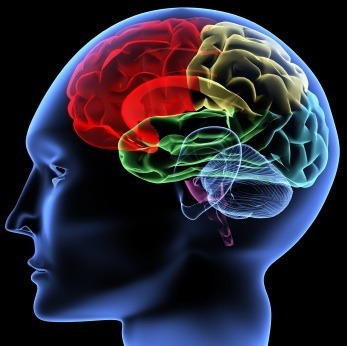Posts Tagged ‘memory-loss’
Good Q&A on Mild Cognitive Impairment
Coping With Mild Cognitive Impairment (NYT blog): “About 10 to 15 percent of adults age 65 and older are believed to have mild cognitive impairment — a condition commonly characterized by memory problems, well beyond those associated with normal aging.… The University of Toronto researchers set out to rectify
Read MoreOn Music, Dopamine, and Making Sense of Sound
Daniel Levitin, in This Is Your Brain On Music, suggests the following sound experiment. Situate yourself someplace where you can close your eyes and focus on the sounds around you. When you open your eyes, write down each sound you heard and the object that made that sound. If you are in a relatively quiet…
Read MoreThe Future of Preventive Brain Medicine: Breaking Down the Cognition & Alzheimer’s Disease Alphabet Soup
As the president and medical director of the Alzheimer’s Research and Prevention Foundation (ARPF), it’s my job to stay on top of advances in the field of Alzheimer’s research. Recently, a number of articles in the medical literature have caught my attention. They are focused on a particular question that concerns most Baby Boomers like…
Read MoreLet’s Define Brain Fitness and Physical Fitness
Beverly Sanborn, Vice President of Program Development at Belmont Senior Living and scheduled 2011 SharpBrains Summit Speaker, could not finally speak at the Summit (she was very well replaced by colleague Jeff DeBevec), but fortunately we can share her thoughtful answers to the following four critical questions. 1. How would you define “brain fitness” vs. “physical fitness”?…
Read MoreEducation AND Lifelong Cognitive Activities build Cognitive Reserve and Delay Memory Loss
In a recently published scientific study (see Hall C, et al “Cognitive activities delay onset of memory decline in persons who develop dementia” Neurology 2009; 73: 356–361), Hall and colleagues examined how education and stimulating activities may interact to contribute to cognitive reserve. The study involved 488 initially healthy people, average age 79, who enrolled…
Read MoreThe Best Memory Tests: Mini-Mental and Beyond (Alzheimer’s Action Plan)
The Alzheimer’s Alzheimer’s Disease Action Plan — The Experts’ Guide to the Best Diagnosis and Treatment for Memory Problems, recently released in paperback. Dr. Murali Doraiswamy, one of the authors and leading Alzheimer’s expert.
Read More


